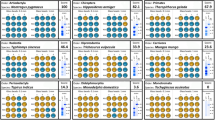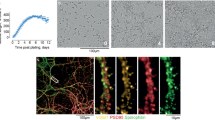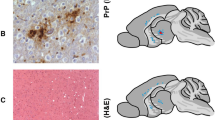Abstract
Prions are units of propagation of an altered state of a protein or proteins. Prions can propagate from cell to cell, and from organism to organism, through cooption of other protein copies. Prions contain no necessary nucleic acids, and are important both as both pathogenic agents, and as a potential force in epigenetic phenomena. The original prions were derived from a misfolded form of the mammalian Prion Protein PrP. Infection by these prions causes neurodegenerative diseases. Other prions cause non-Mendelian inheritance in budding yeast, and sometimes act as diseases of yeast. We have compiled a database of >2000 prion-related sequences, called the PrionOme. The database comprises seven PrionOme classification categories: prionogenic sequences (i.e., sequences that can make prions), ‘prionoids’ (i.e., phenomena that have some prion characteristics), orthologs, paralogs, pseudogenes, prion interactors, and prion-like molecules. Database entries list: supporting information for PrionOme classifications, prion-determinant areas (where relevant), and disordered and compositionally-biased regions. Also included are original references for the PrionOme classifications, transcripts and genomic coordinates, and structural data (including comparative models). We provide database usage examples for both vertebrate and fungal prion contexts. As development of this resource is on-going, we will be very happy to receive and act on any constructive comments from peer scientists in the areas of prion biology and protein misfolding, either by email or using the feedback form provided on the PrionOme website. We hope that this database will be a valuable experimental aid and reference resource. It is freely available at: http://libaio.biol.mcgill.ca/prion.
Similar content being viewed by others
Article PDF
Author information
Authors and Affiliations
Corresponding author
Rights and permissions
About this article
Cite this article
Sowdhamini, R., Harrison, P., Harbi, D. et al. PrionOme: A database of prions and other sequences relevant to prion phenomena . Nat Prec (2011). https://doi.org/10.1038/npre.2011.6430.1
Received:
Accepted:
Published:
DOI: https://doi.org/10.1038/npre.2011.6430.1



